you’ll raise the roof with shouts of joy (Job 8:21; The Message)
Ryori is a fishing town near a beautifully secluded harbor out on the peninsula just north of Ofunato City. Ryori is known as the location of the highest tsunami measurements in the modern history of Japan. In 1896 a massive earthquake struck this region and tsunamis wreaked havoc up and down the coastline. The highest water marks found were in this town and they still hold the record at 38.2 meters. Following that disaster the town built a breakwater at the mouth of the bay and experts suggest that if it weren’t for that breakwater Ryori would once again have faced record water levels. As it was the high water mark was at 23 meters!
This morning we drove up to a temporary housing area situated in the playground of the Ryori Jr. High School. Ninety units squeezed into a school playground doesn’t leave much room for anything else. Our first task was to go door to door, inviting residents to the special event. Our special event involved a collaboration with a professional singer from Kyoto. She was introduced to us through a friend of a friend and she wanted to come and offer what ever encouragement she could. As it turned out her act was an absolute riot! She represented some of the best of Kansai (Western Japan) humor; a mixture of vaudeville like garishness, sassy sarcasm, and a profoundly warm heart. The residents, mostly women in their fifties, sixties and seventies, were absolutely eating it up! Many of the songs were familiar to the audience and yet some were new; written especially for this occasion. The music itself was in the Japanese genre called enka, which is hard to explain to non-Japanese but we sometimes describe it as the “Country Western” music of Japan. It’s most popular in rural areas, among middle aged and older people, and typically features extremely emotional lyrics. All in all, the music and the humor brought rich laughter and joy to the hearts of many hurting people.
When the performance was over and everyone was enjoying tea, snacks and still more laughter the performer emerged from her dressing room, ready to go home. It was then that the residents spoke up and said, “In appreciation for all you’ve given us, we would like to perform our music for you!” Their town song leader came to the front of the room and soon every towns-person in the room was clapping and chanting in unison. The leader then began to sing the hauntingly lyrical folk music of their town in language so stylized and old that I couldn’t understand a word of it. At points in the song the whole crowd joined in again, chanting the refrain in well rehearsed unison. The leader and the crowd traded lines back and forth several times before moving to the second, third and fourth verses. Afterwards the women explained that this is a song of celebration they sing when their fishermen husbands return to port with flags flying on their boats, signalling a large catch. As the men and women work together offloading the catch they sing this song, trading chants and phrases back and forth in celebration of their good fortune.
On March 11 the fishing harbor in Ryori was destroyed. The seven meter seawall was swallowed up in a flash and almost all their boats, warehouses, and virtually everything else associated with the fishing industry in their town was destroyed that day. Many of the residents are too old to even dream of starting over in this investment intensive line of work. They’ve lost their homes, their boats, their livelihood, and in so many ways, their home town. And yet they remember the song! The old song has a place in their heart, and singing it reveals a powerful image of just exactly who they are. As soon as I heard them singing it I realized that these are not easily defeated people. I’ll try to upload a link to the video of this moving number in the days to come.
Later in the day we set aside time for our local leaders here on the ground to interact with the team from Wheaton. The conversation was rich and helped us all think further about why we are here, what we seek to do and be in Tohoku and what we might be able to expect in the months and years to come. While this wasn’t a time to make decisions or draw final conclusions it seems clear that the primary focus of our efforts centers on building relationships. Our volunteers seek to build personal relationships with the people they serve in this region. Much of what we do helps to build community and relationships among the victims who find themselves cut off from the communities they knew and thrown into new settings such as temporary housing centers where they are often surrounded by people they don’t know. The Iwate 3.11 Church Network also builds relationships between a variety of organizations including local churches in Iwate, churches and denominations throughout Japan, supporting churches, denominations and organizations in Taiwan and the U.S. and in one way or another we always seek to see the emergence of personal relationships between the people of tsunami ravaged Tohoku and Jesus Christ. Please continue to remember this region in your thoughts and prayers as God builds the kingdom.
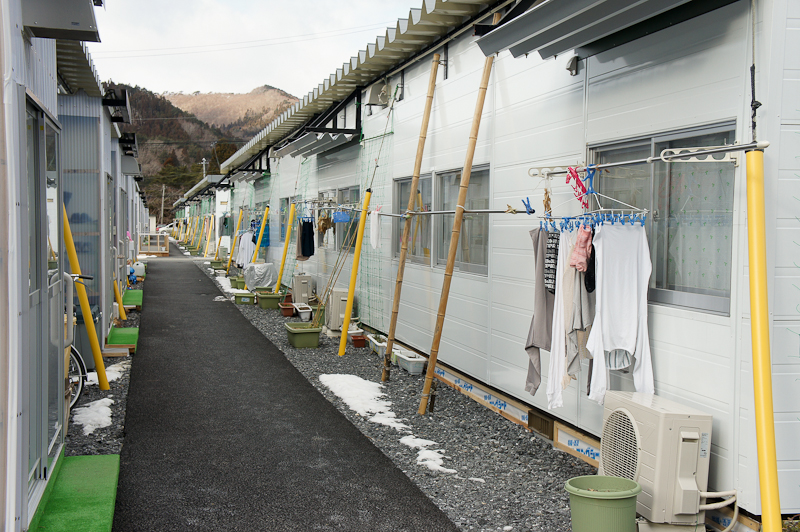
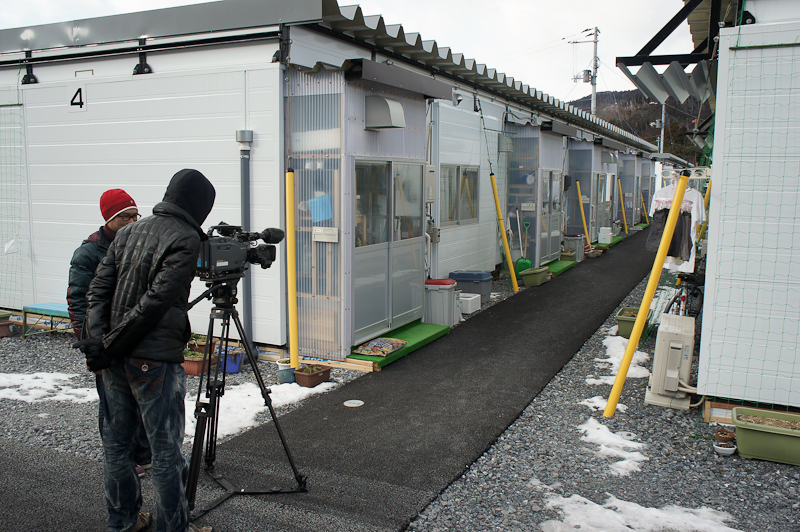
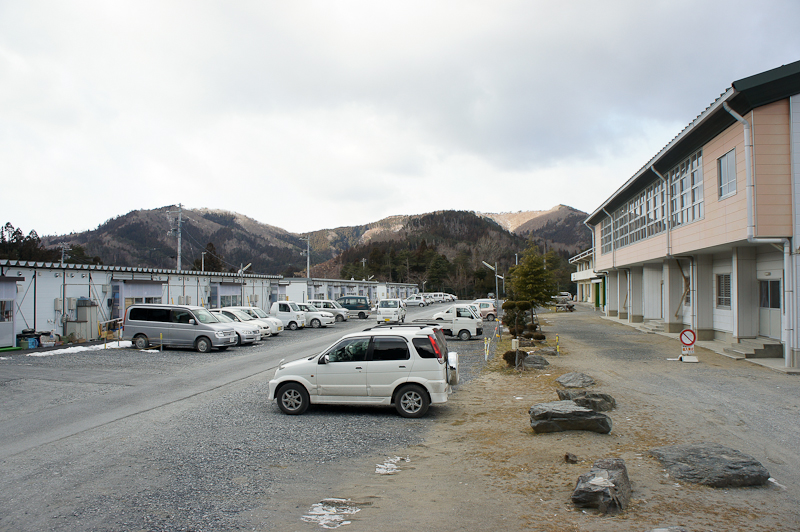
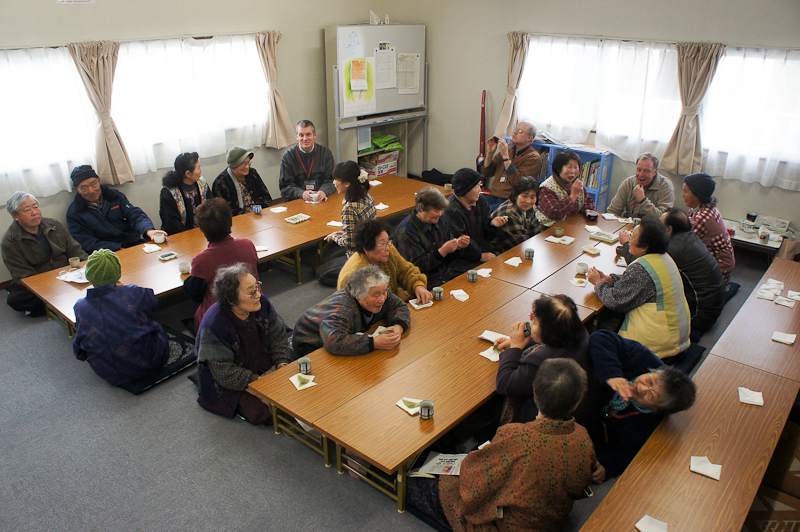
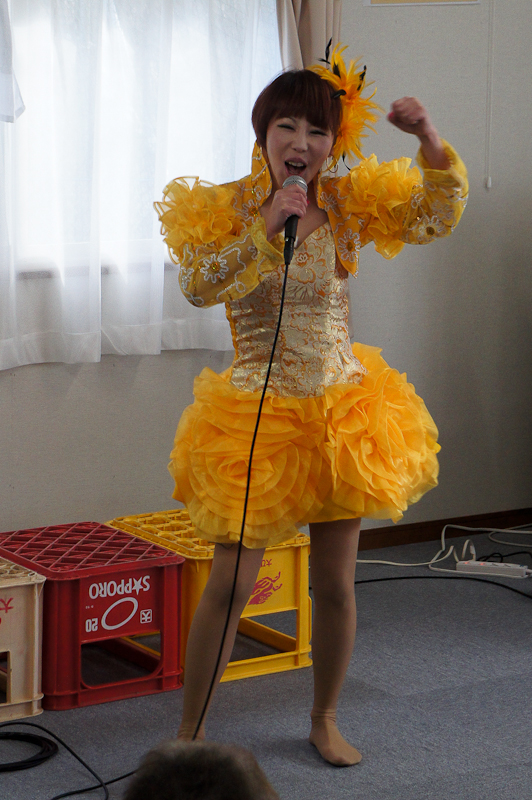
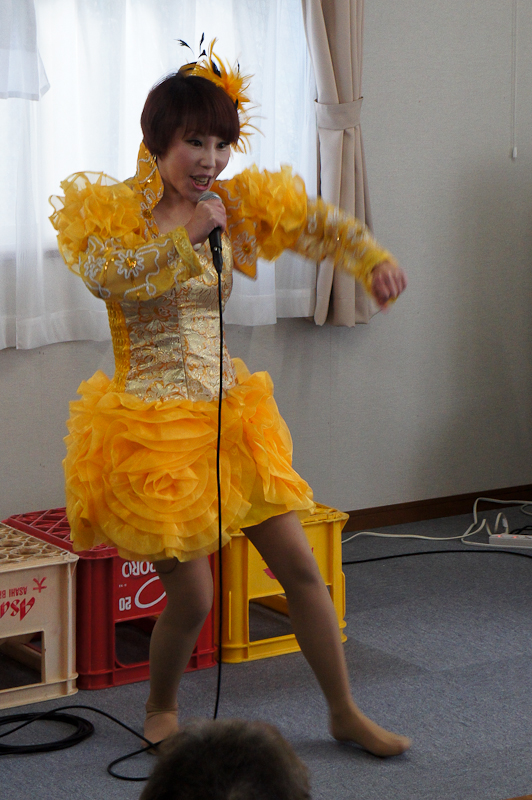
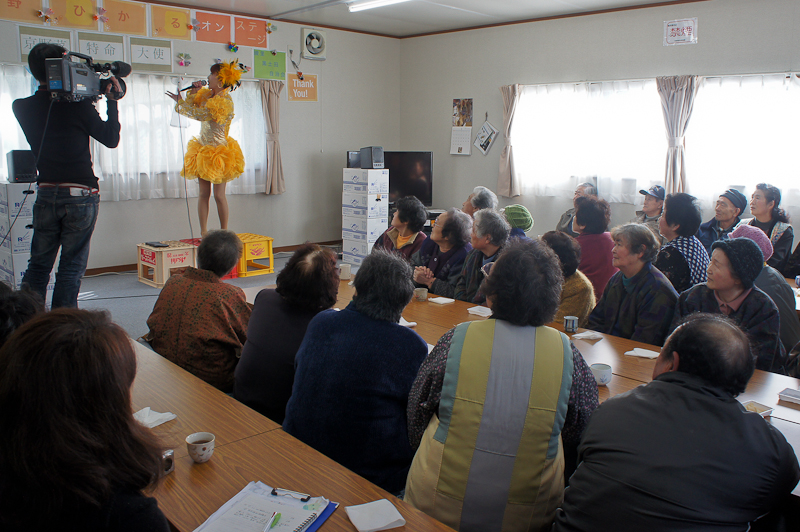
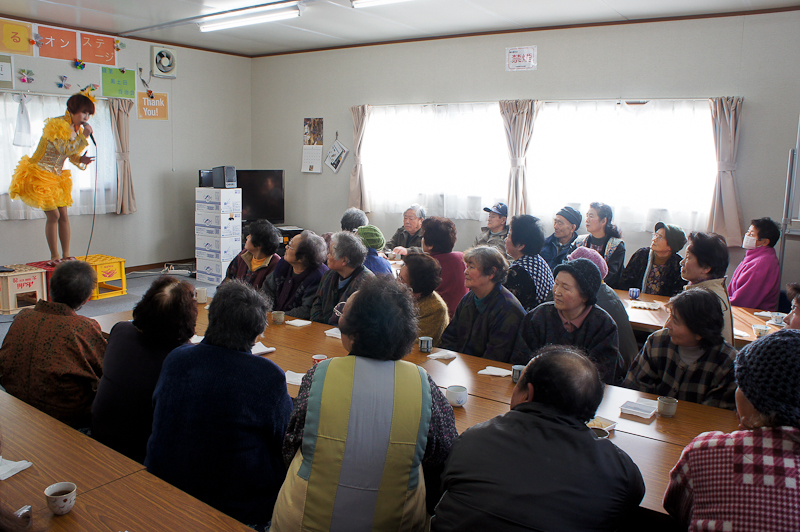
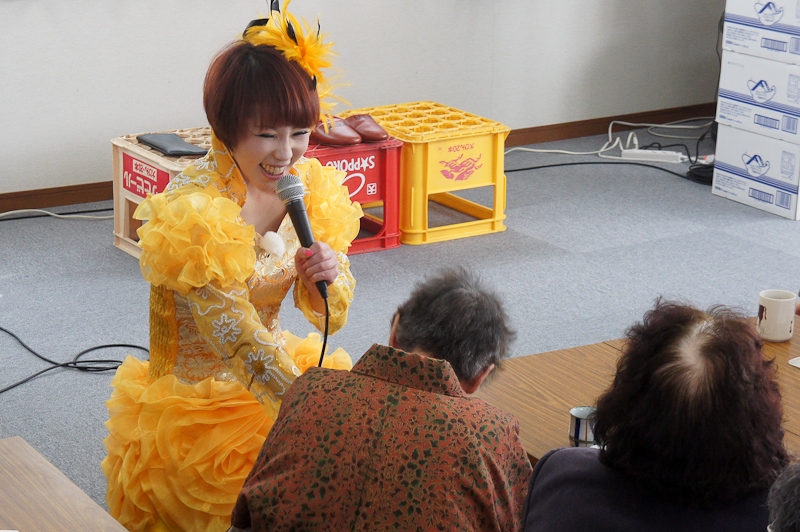
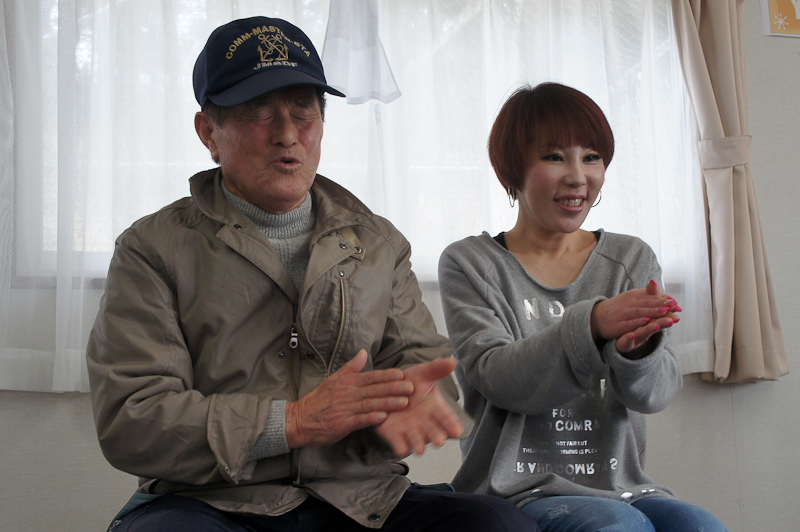
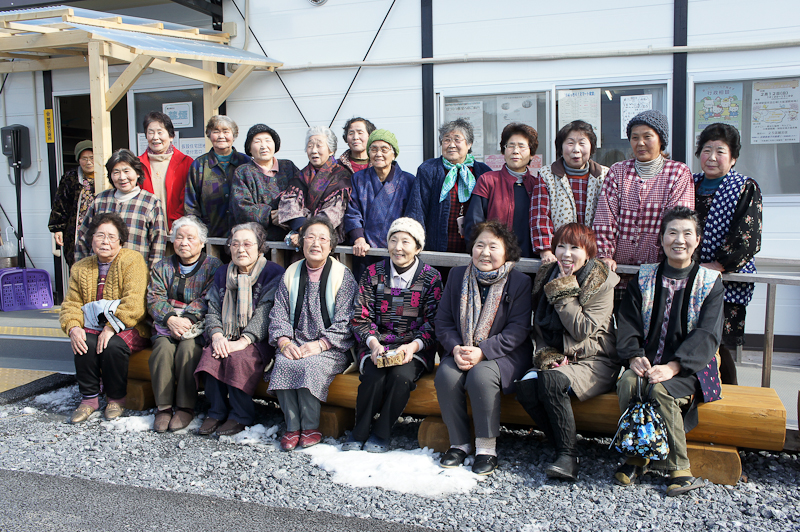
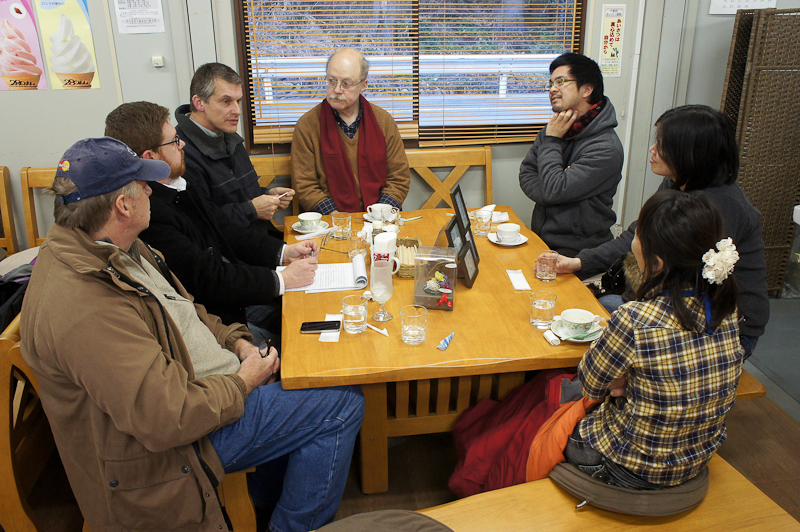


Great story Jim! Loved the yellow costume! Have a safe drive back home and thanks for taking the Wheaton group up.
Report This Comment
02.09.12 at 8:30 am
Jim & Hydi
This reminds me of some of the trips I went on with your Mom and Dad when I was stationed in Yokosuka during the early ’80’s. I so enjoyed interacting with the local people even though I had to have your Mom translate for me somtimes. It is so neat to see you both following God’s work. Your story was really interesting about what you are doing and I could amost feel as if I was there just from my experience in Japan.
Report This Comment
02.10.12 at 6:42 pm